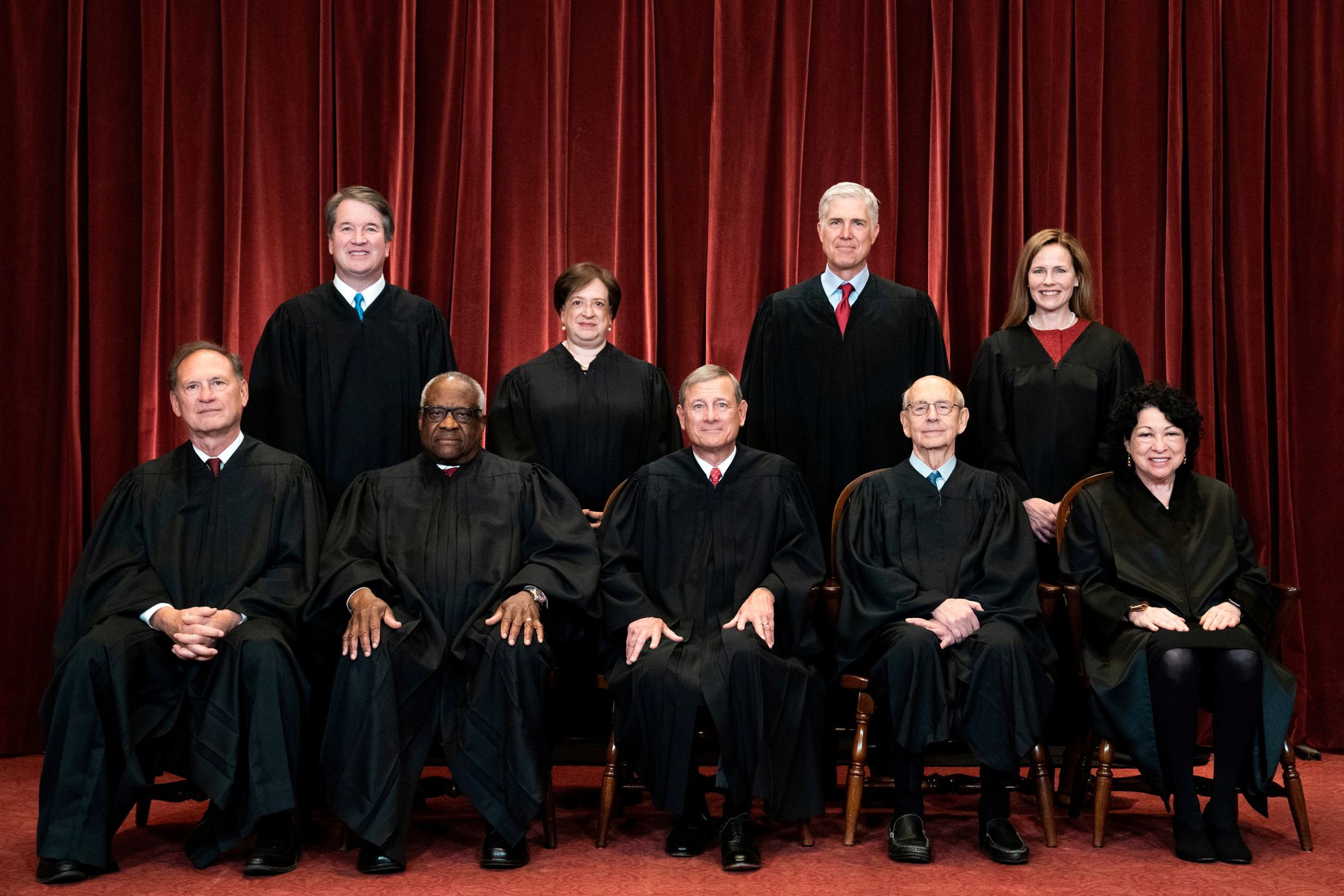TOOK OVER: Feminist icon Ruth Bader Ginsburg (left) died in 2020. She was replaced by more conservative Amy Coney Barrett in the US Supreme Court. Photo: REUTERS / AP / NTB
––
A nearly 50-year-old ruling that legalized abortion in the United States is in the pot when the US Supreme Court this fall deals with Mississippi’s abortion law.
Less than 1 hour ago
–
On Monday, the US Supreme Court announced that it will review the Mississippi abortion law. It bans most abortions after week 15.
– In recent years, several states have worked to bring such test cases to the US Supreme Court. Especially in the southern states, several have passed laws that are either in conflict with or in direct conflict with the “Roe mot Wade” ruling, says associate professor of law and US expert Sofie Høgestøl.
“Calm down against Wade” is a Supreme Court ruling from 1973, which ruled that abortion is a consequence of the right to privacy. This right is secured by the 14th Amendment to the Constitution.
– Thus, they get tested whether the new conservative composition of the Supreme Court will look at this differently than the ruling from the 1970s, says Høgestøl and adds:
– Only by taking in this case do they give a clear signal.
Conservative Supreme Court
One of Donald Trump’s major victories as US president was the appointment of three Supreme Court justices, all of whom are considered conservative. When feminist icon Ruth Bader Ginsburg died towards the end of the period, he was replaced by Amy Coney Barrett in a short time.
– Privately, she has signaled that she is against abortion, but she has been clear that she should let the law rule in office. Then the question is how she interprets the law, says Høgestøl.
The Supreme Court now consists of three judges who are considered liberal, and six who are considered conservative.
– They could say no to the case, and it would probably happen before Ruth Bader Ginsburg died. Then the law in Mississippi would be illegal under the Constitution and would in practice be repealed.
 —-
—-TRUMP’S LAST VICTORY: Barrett’s appointment was one of Donald Trump’s recent political triumphs as president. Photo: CARLOS BARRIA / REUTERS / NTB
––
“Calm down Wade”
Now the question is what happens to the “Roe mot Wade” verdict, which for almost 50 years has been a guarantor of American women’s right to abortion.
– The most likely outcome is that the Supreme Court does not remove the federal right to abortion, but that they allow the states to introduce restrictions in it, says political scientist and US expert Hilmar Mjelde.
– That is, rules and procedures that make it more difficult for women to have an abortion. I’m pretty sure they’ll not take the abortion right away completely.
Sofie Høgestøl thinks the same:
– They can slowly but surely erode “Calm down against Wade”. For example, that the constitution still ensures a right to self-determined abortion, but only until week 15. With many such test cases, one can restrict access to abortion, in the states that want it.
 —-
—-POWERFUL AND CONSERVATIVE: The US Supreme Court now has a large majority of judges who are considered conservative. Back from left: Brett Kavanaugh, Elena Kagan, Neil Gorsuch and Amy Coney Barrett. Front from left: Samuel Alito, Clarence Thomas, John Roberts, Stephen Breyer and Sonia Sotomayor. Photo: POOL / REUTERS / NTB
––
Election campaign
– This case comes up in October. As we know the US Supreme Court, they will probably spend a few months on it. They often drop big, controversial cases before going on summer vacation. One scenario is that it is released just before the election, says Sofie Høgestøl.
In the fall of 2022, there will be elections in a number of states and for many of the members of Congress.
– One thing is the legal question, something else is if it goes straight into the American election campaign next year. For Republicans, it is a milestone just to bring this case before the Supreme Court. Not least for Donald Trump personally, who promised the Christian conservative voters good, conservative Supreme Court rulings, for example in abortion, says Høgestøl.
 —-
—-US EXPERTS: Sofie Høgestøl (left) and Hilmar Mjelde. Photo: Frode Hansen, VG / Norce
––
Hilmar Mjelde points out that the verdict from 1973 is already controversial:
The problem legally is that the right to privacy and the right to abortion have never been enshrined in the constitution. The Supreme Court only interpreted the constitution as such in “Roe mot Wade”. So it has always been controversial, even in the legal profession and not just on the American right.
He does not think the Supreme Court’s decision will change next year’s election campaign:
– Dirty election campaign with hysterical scare rhetoric and disaster thinking is common in the United States.
–

